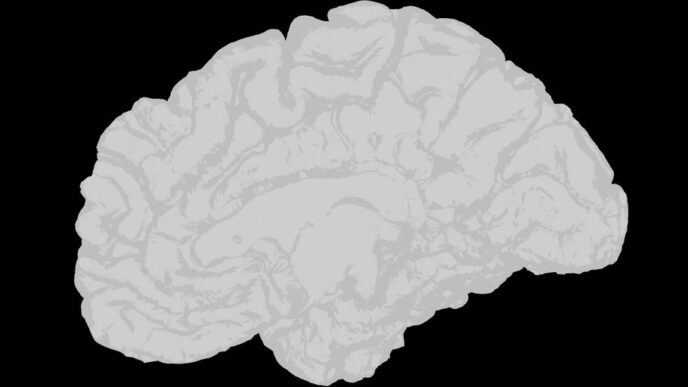As technology continues to advance at an unprecedented rate, the possibilities for artificial intelligence are limitless. From autonomous vehicles to virtual assistants, AI has already transformed the way we live and work. But what does the future hold? How will AI evolve to meet new demands in healthcare, finance, and beyond? In this blog post, we’ll explore some of the most exciting developments in AI technology and discuss how they’re poised to change our world forever.
Introduction to AI and its uses
The term “AI” stands for artificial intelligence. AI is the result of applying cognitive science techniques to artificially create something that performs tasks that only humans can perform, like reasoning, natural communication, and problem solving.
Applied to business, AI has the potential to automate tasks, free up employees’ time, and improve decision making by providing real-time insights. Currently, AI is being used in a number of different ways within businesses. These include but are not limited to:
-Customer service: Automated customer service chatbots are increasingly being used to handle simple customer queries. This frees up customer service representatives to deal with more complex issues.
-Marketing: AI can be used to personalize marketing content and target ads more effectively.
-Sales: Sales teams are using AI tools to prioritize leads and identify potential upsell opportunities.
-Fraud detection: Banks and other financial institutions are using AI to detect fraudulent activity.
-HR: HR departments are using AI for things like talent acquisition and performance management.
Benefits of Artificial Intelligence
In the coming years, AI will become increasingly widespread and sophisticated. Here are some of the potential benefits of this technology:
- Improved decision-making: AI can help businesses and organisations make better decisions by providing them with accurate and up-to-date information.
- Increased efficiency: AI can automate tasks and processes, making businesses and organisations more efficient.
- Improved customer service: AI can provide customers with personalised service and support, making them more satisfied with your company or organisation.
- Greater insights: AI can analyse data more effectively than humans, providing businesses and organisations with valuable insights into their operations.
- New products and services: As AI evolves, it will enable businesses and organisations to develop new products and services that were previously not possible.
Challenges faced by AI technology
One of the challenges faced by AI technology is the increasing demand for faster and more accurate results. With the ever-growing amount of data being generated, it is becoming more difficult for AI systems to keep up with the pace. Additionally, as AI technology evolves, so do the expectations of users. They are constantly demanding more intelligent and human-like results from their interactions with AI.
Another challenge facing AI technology is its ability to handle unstructured data. As more and more companies move towards digital transformation, they are generating large amounts of unstructured data (such as images, videos, and text). This data is difficult to process and make sense of using traditional methods, but is essential for training AI models.
It can be difficult to integrate AI into existing business processes and workflows. Many organizations have legacy systems in place that were not designed with AI in mind. As a result, they must either find a way to integrate AI into these existing systems or build new ones from scratch. This can be time-consuming and expensive, which presents a challenge for companies who want to adopt AI technology.
The Future of AI: Predictions
The future of AI is shrouded in potential but fraught with uncertainty. But despite the many unknowns about the future, there are a number of factors that suggest that AI will become increasingly important. In particular, three forces are likely to shape the future development of AI:
The decreasing cost of computing power and data storage: This trend has been underway for decades and is likely to continue, making it possible for more organisations to afford to invest in AI.
The increasing availability of data: With the proliferation of sensors and devices connected to the internet, organisations will have access to ever-growing troves of data that can be used to train machine learning models.
The advances in machine learning algorithms: Researchers are continuously finding new ways to improve the performance of machine learning models, making them more effective at completing tasks such as image recognition or natural language processing.
AI will become increasingly important in the coming years as these trends come together to create a more favorable environment for its development. However, it is important to remember that AI is still in its infancy and there are many challenges that need to be addressed before it can reach its full potential.
Examples of AI Applications in the Future
There’s no doubt that AI technology is evolving rapidly and will continue to do so in the future. Here are just a few examples of how AI applications might change in the years to come:
- We’ll see more AI-enabled personal assistants.
- Smarter search engines will become even better at understanding natural language queries.
- Automated customer service will become more widespread.
- predictive analytics will get better at anticipating our needs and wants.
- Augmented reality and virtual reality will be increasingly powered by AI.
Impact of AI on Businesses & Industries
The impact of artificial intelligence (AI) on businesses and industries is far-reaching and continues to evolve. Businesses are using AI to automate processes, make better decisions, and improve customer experiences. Here are some examples of how AI is impacting businesses and industries today:
- Automation
Businesses are using AI to automate tasks that were previously done by humans. This includes tasks like customer service, data entry, and social media monitoring. Automating these tasks frees up employees to do other work and can help improve efficiency and accuracy.
- Decision-making
AI is being used by businesses to make better decisions. By analyzing data more quickly and accurately than humans can, AI can help businesses make decisions about things like pricing, inventory management, and marketing strategies.
- Customer experience
Many businesses are using AI to improve the customer experience. For example, chatbots can be used to answer customer questions or provide recommendations. Personalized messages and offers can also be sent to customers based on their purchase history or previous interactions with the company.
Ethics & Safety Concerns with AI
As artificial intelligence (AI) technology continues to evolve and become more sophisticated, there are bound to be ethical and safety concerns that arise. After all, AI is essentially designed to mimic human behavior, so any potential risks that come with human behavior are also likely to apply to AI.
One of the main ethical concerns with AI is the question of control. Who will ultimately be in control of these intelligent machines? And what happens if they become uncontrollable? There are also concerns about data privacy and security, as well as the potential for AI to be used for malicious purposes.
Safety is another big concern when it comes to AI. As autonomous vehicles become more common, for example, there is a risk that they could cause accidents if not programmed properly. There is also the possibility that robots could eventually become so advanced that they could pose a physical threat to humans.
All of these concerns need to be taken into consideration as AI technology continues to develop. It’s important to have an open dialogue about the ethical and safety implications of AI so that we can ensure that this technology is used responsibly and for the benefit of all.
Conclusion
AI is a rapidly growing technology, and as we move forward into the future, it’s clear that this technology will continue to evolve in order to meet the ever-changing demands of our society. With advancements in machine learning, natural language processing, computer vision and more, it’s likely that AI will become an even bigger part of our lives. As such, it’s important that we stay informed about these new developments so that we can make sure they are being used responsibly and ethically.












